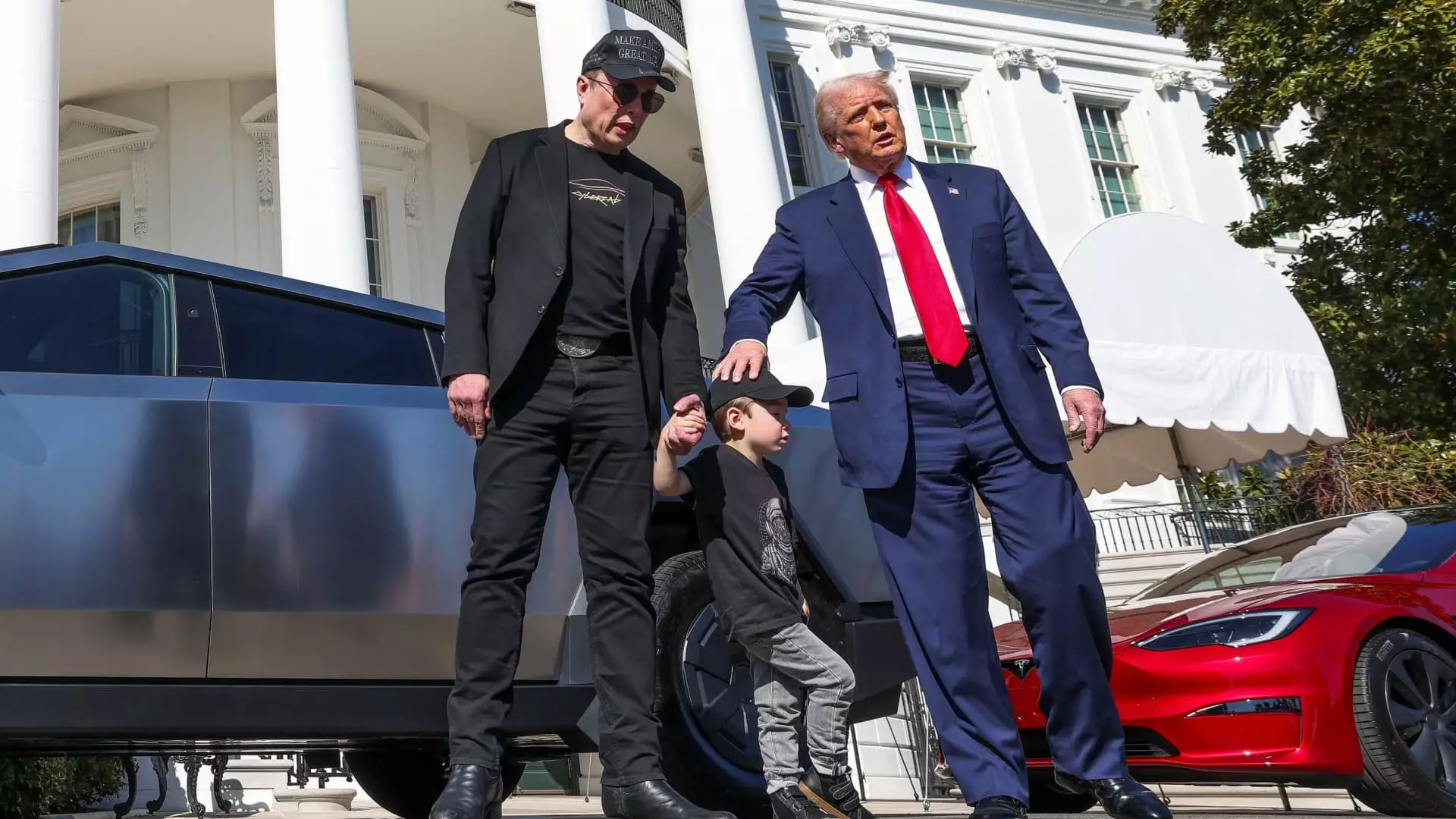Elon Musk’s recent comments on tariffs reveal a nuanced perspective that transcends conventional praise or criticism. While he articulates a dislike for high and unpredictable tariffs, his acknowledgment that the final word lies with the President of the United States underscores a troubling dependency on political arbitrariness that could threaten economic stability. Tariffs, often wielded as tools for protectionism, can serve as double-edged swords that not only affect international relations but also have sweeping implications for innovation, consumer prices, and the very fabric of industries reliant on global supply chains.
In Musk’s case, Tesla stands at a unique crossroads. His insistence that Tesla enjoys a relatively favorable position compared to traditional automakers because of localized supply chains—spanning North America, Europe, and China—is a testament to strategic foresight. But amidst this corporate bravado lies an unsettling truth. The very foundations of Tesla’s success are precariously intertwined with the shifting sands of international trade policies. Even a proclamation of strength becomes a statement of vulnerability when the supply chain relies heavily on foreign entities for critical components.
Financial Turbulence Amid Political Noise
Despite Musk’s confident rhetoric, Tesla’s recent financial results paint a much grimmer picture. A staggering 20% decline in automotive revenue and a dramatic 71% plunge in net income encapsulate the harsh realities of market volatility. The turbulence in Tesla’s stock price, exacerbated by hinting at widespread tariffs, reinforces the point that the impacts of tariffs are no mere background noise in the orchestra of corporate earnings; they are a dissonant chord that can alter the trajectory of performance drastically. One has to wonder, how can a company that once epitomized innovation and growth suddenly find itself navigating such treacherous waters?
Musk’s sporadic discord with the Trump administration on tariffs showcases a vulnerability in his reliance on political structures that often prioritize short-term political gain over long-term economic health. His blunt appraisal of Peter Navarro, the president’s trade advisor, demonstrates a fracture point that could very well herald decreasing influence. Musk’s advice to the President may land on the proverbial deaf ears more often, making it unclear if an advocacy for lower tariffs—which can stimulate competition and encourage innovation—will hold any sway against a backdrop of protectionist fervor.
The Dilemma of Dependency
Tesla’s heavy reliance on global suppliers for manufacturing equipment and battery materials complicates its standing within the tariff battleground. With significant imports from China, Mexico, and Canada, Musk acknowledges that while Tesla may not be directly affected by the looming tariffs on imported vehicles, the overarching impacts resonate through their supply chains. The unsettling prospect of tariffs catching up with sectors crucial for future innovation cannot be overstated.
Musk’s mention of his advocacy for predictable tariff structures resonates with the silent hope for economic recovery that the public, investors, and innovators share. Tariffs that can be planned for and understood may offer companies like Tesla a viable pathway toward sustained growth rather than an unpredictable minefield of regulations. However, this is contingent upon the willingness of policymakers to embrace frameworks that prioritize both economic sustainability and consumer welfare—a tall order in today’s hyper-partisan climate.
A Vision for Vertical Integration
With aspirations to counteract tariff impacts by localizing battery production, Musk’s comments on Tesla being the “most vertically integrated car company” are both a badge of honor and a stark reminder of the bounds of control. Plans to source lithium iron phosphate cells from local manufacturers indicate strategic adaptation, yet they unveil a sobering reality: true self-sufficiency remains a distant goal. Musk’s candid acknowledgment that they can’t “grow rubber trees and mine iron yet” serves as a humbling reminder that innovation is inherently limited by geographic and logistical constraints.
The narrative surrounding Musk and Tesla encapsulates the complexities of a global economy increasingly under pressure from nationalism and trade wars. Musk’s center-wing liberal stance offers a glimmer of hope amidst a backdrop of protectionism, supporting positions that advocate for free trade. Yet, with every financial downturn and every harmful policy brushstroke, it becomes evident that the trajectories of personal conviction and political realities are often at odds. The question remains: can companies like Tesla navigate these turbulent waters, or will they ultimately find themselves at the mercy of the very systems they seek to influence?


Leave a Reply